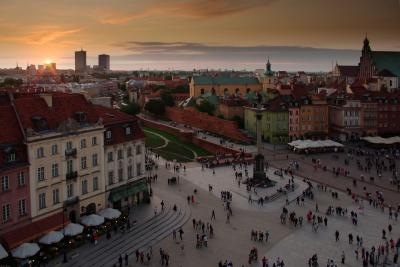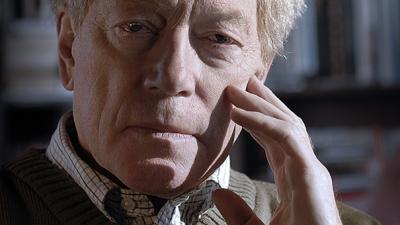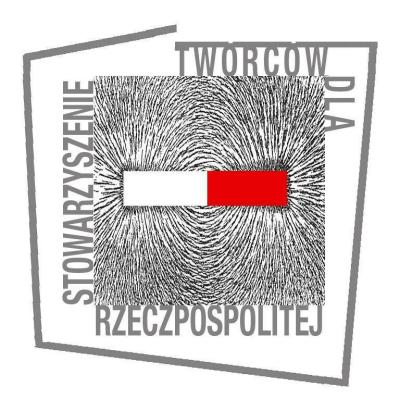When I said in an interview with TV Republika that “the threat to our sovereignty from the west is greater than from the east”, immediately adding that: “This is paradoxical”, a campaign of disinformation and denigration began. The inspirers of the campaign did this quite deliberately to incite their supporters; others repeated the theses I had already allegedly proclaimed, that “the West is the enemy” and “greater” than Russia, etc., which I had never declared.
Of course, only a few had actually read the interview. The public “debate” in Poland, in general, resembles the children’s “Chinese whispers” old game when the initial word, with each repetition, whispered into the ear of the next child, is distorted so that at the end of the chain you have to guess what was said at the beginning. But the children playing this game are aware of their distortions - unlike many modern social media users. And it is to these victims of the “Chinese whispers” that this text is addressed, in which I once again explain my position, and not to the media touts who act calculatingly.
Well, firstly, I have in no way diminished or downplayed the threat from Russia. To knowingly attribute such a position to me is a despicable lie. Anyone who would like to consult my university work, my activities in the European Parliament or the texts I have published over the years can see that. Russia is a huge threat to Poland and to other countries. This threat is serious, even deadly. Russian aggression can also turn against us at any time. And one cannot be surprised that the Poles, who have so often stood on the threshold of biological or cultural annihilation, are so afraid of Russia and so anxious to strengthen our defences in the broad sense of the word, protecting us from this danger. This legitimate fear, however, should not close our eyes to the fact that there are other non-military threats as well. Without relativising the threat from Russia, we should not forget the negative political, economic, and cultural processes taking place in our international environment.
Is there today a threat to Polish independence, to Poland’s sovereignty, independence, or subjectivity - whatever we want to call it because it is not about words - coming not from the east but from the west? Yes, by all means. It is not a threat of physical destruction and enslavement by brutal force; it is not that someone will murder us, rape us, destroy our cities, burn our villages, invade, or conquer. In this “competition”, Russia is indeed second to none. The threat from the west, or to be more specific, from the European Union, or at least from certain political forces within it, is something else - that is, depriving Poles of the opportunity to make fundamental decisions about Poland, to decide how we would like to live as a society, as a nation, which in the extreme would mean a loss of independence or sovereignty.
Independence can be lost not only due to conquest but also due to dependence and incapacitation by other means - politics, law, economic and cultural influence. Loss of independence does not even have to be the same as exploitation - although this has been the case in the past. One can, after all, live in prosperity without being a free nation. But even the most magnanimous paternalism is not the same as independent decision-making. Nor is the loss of sovereignty the same as the loss of cultural identity. For it is possible to retain cultural distinctiveness without being a nation but merely an ethnic group, not a nation-state but a region with distinct folklore. Nor does the loss of independence necessarily mean the end of individual freedom. One can be free as an individual and enjoy one’s freedom in one’s private life without being a member of a free nation. But since the lack of independence means the end of the possibility to make fundamental decisions concerning collective life, so ultimately - as the history of Poland shows - it also ends with negative economic and cultural consequences and a restriction of individual freedom.
In the aforementioned interview, I expressed, not for the first time, my conviction that the progressive centralisation of the European Union, and the attempts to give it the character of a state, are a threat to Polish sovereignty. In the state of “Europe” - in the United States of Europe - there will be no sovereign, independent, self-governing Poland. It may even be assumed that it will have fewer powers than the individual states in the United States of America, as even now, the EU member states are less able to act independently in certain matters.
We do not know, of course, whether the plans to build a superstate Europe will succeed. What we do know, however, is that successive crises have led to further steps in its construction. The financial crisis was used to tighten control over states’ budgetary policies, the immigration crisis was to end in the distribution of immigrants, and the covid crisis led to the creation of a large off-budget “instrument for reconstruction and strengthening of resilience” fund, to the granting of borrowing powers to the European Commission on financial markets and to the establishment of a conditionality mechanism making the disbursement of European subsidies conditional on the “rule of law”. The crisis in Ukraine could, according to the proposals that have been floated, result in a move away from unanimity and other institutional changes, such as a transnational list for European Parliament elections and the granting of the right of initiative. The Commission is already extending its powers in connection with the emergency measures taken to deal with the energy crunch, going even deeper into the energy and industrial policies of the states. Reactions to the Italian elections, which were followed by the formation of a conservative government, have once again made us aware of how strong the conviction has become within the Union of the right to review and control democratic elections in member states and the policies of elected governments.
Can this danger to our sovereignty be considered greater than that coming from the east, than that posed by Russia? In a sense, yes, if we consider its specific nature. Russia is a deadly threat, but it is a threat we have known for at least three centuries. And - as I said in the aforementioned interview – “Poles know how to deal with such a danger”. We know how to defend ourselves; we know what to do. The threat is military, so we are building a strong army, and we also have reliable and strong allies. NATO is a strong basis for our security. We also all understand how important the alliance with the United States is for us. There is great unity among Poles on this issue. With few exceptions, Polish society has no illusions about Russia, and this is how it differs from many other European societies and nations, from the Germans, the French, or the Italians. Poland is one of the countries most involved in supporting Ukraine, rightly assuming that the Ukrainians are also fighting for us. Rarely on any other issue are we so united - and in this sense, “Putin unites us”, us Poles, us Europeans, us the “community of western states” - as an enemy, a foe. There is also a general consensus on this within the European Union.
Many EP documents condemning Russia often bear the signatures of MEPs from various political groups, including some I would not otherwise wish to deal with (for example, that MEP, a Silesian separatist, who rushed to the University of Bremen with a false denunciation of me).
Security and physical survival are the basis of all individual and social life. Russia, therefore, also threatens our independence. Poland under its control would again - like the Polish People’s Republic - not be a sovereign state but a satellite with a puppet government, and the authentic Polish elite would probably be slaughtered as always. Almost all Poles understand this.
It is more difficult to understand that the threat to our right to self-determination also comes from the Union, which, as I said, “uses completely different means, incentives, money, soft power, a certain attractiveness”. Not all Poles understand or want to understand that the money flowing into Poland is followed by specific obligations set by the Union. What matters is prosperity and well-being, and many of us do not mind that this would be ensured by a different decision-making entity than the Polish state. Today, it is the Union that makes the most critical decisions on climate and energy and, thus, on our economy. The fact that we have problems with coal supplies today is the result of the war and the EU’s radical policy of decarbonising the economy.
The argument constantly repeated in the Polish media that we have to abide by the rules of an organisation we voluntarily joined would perhaps be true, were it not for the fact that these rules are constantly being changed, extended to new areas, and interpreted “very creatively”. When we wanted to join the European Union, could we have imagined that it would want to interfere with our family law, determine from which sources we are to generate electricity, or dictate how much gas we are to have in our storage facilities or which cars we can drive? The mechanism for extending competencies is a familiar one - it usually starts by encouraging voluntary cooperation between states, only to be burdened by EU law in subsequent steps.
Ultimately, more and more decisions are being transferred to Brussels because the European Union is no longer just an organisation with strictly limited competencies, like NATO, for example, it is no longer just institutionalised cooperation of states in a certain area. The EU has ambitions to become a political entity. According to the federalists currently dominating the European Parliament, the Union is a state in statu nascendi.
Poles do not see this as a threat, either because they are unaware of it or indifferent to it. This threat does not concern the inviolability of our territory - although some Poles suspect Germany of such aspirations, there is no need to revise the borders in order for the EU to be able to control Poland entirely in future, control it peacefully and with the consent of the Poles themselves. This is all the more so because there is also a widespread conviction that we are too weak to live as a free nation and that the European Union is too wise and strong for us to resist it.
Nowadays, in connection with the advancing Russian aggression, it is more common than before to see the statement that we must entirely and obediently blend into this generous, powerful and wealthy whole that is the European Union, that we must not criticise it, point out its mistakes, that we must become uncritical of the “West”, because criticism works in favour of Russia, and that we must not build alliances of parties within it outside the mainstream, because this weakens unity. But it is precisely this - this fear, this impossibilism, this attitude of a servile vassal, this whole historiosophy, that makes the possibility of renouncing independence plausible and is, in fact, an expression of the muzhik attitude so characteristic of Russia.
However, the interests and policies of the European Union and its dominant states are not the same as those of “the West”. Generally, it is misleading to speak of the “West” as a unified political entity with an enduring identity. It is no coincidence that I said about the threat emanating from the west and not of “the West” as a whole. Norman Davies once rightly stated that: “The notion of the West is as old as the ancient Greeks themselves, who saw free Hellas as the opposite of the Persian-dominated despotic rule in the East. In modern times it has been taken over by successive spokespersons of one political interest or another who wished to strengthen their own identity while cutting themselves off from their neighbours. The result was a great accumulation of meanings and connotations that grew over the centuries”[1] and went on to list dozens of meanings of the term in his “Europe”. Nowadays, the concept is fairly straightforward when we talk about the rivalry with Russia or China. Then it is more or less clear what we mean by “the West” as a whole. From a closer perspective, we see fundamental differences between “Europe” and the United States. “Sovereign Europe”, of which President Macron speaks, was and is supposed to be sovereign vis-à-vis America as well. Within Europe, there are also differences between individual states. Poland, like other states, has the right to articulate its interests and cherish its differences. It is also entitled to its opinion on the European Union and the policies of the “West”. We are part of this “West” just like France or Germany, not to mention Belgium, Luxembourg, or Greece.
Is sovereignty important? If we were a prosperous region of some larger political whole, wouldn’t it be better, safer, and wouldn’t it be more in line with the political realities of the modern world? This was also the thinking of many Poles in the 19th century. Many called for the pipe dream of Poland to be abandoned. Just as today, it was argued that it was precisely the abandonment of Poland, the renunciation of statehood, that not only reason but also patriotism dictated. And there were many more such Poles than those who fought for independence. Blending in with the partitioning states was regarded as the only way to - in favourable circumstances - also preserve national identity. Not only Prussia or Austria but even the Russian empire seemed to offer this possibility. Vladimir Spasovich, lawyer, legal theorist and liberal, wrote in his essay “The Politics of Suicide”: “Let us not be suicidal, but let us also protect ourselves from that national egoism which would sacrifice the fate of the world to place the national homeland on its heaps”[2]. For it would be unrealistic “to re-nationalise our nation, that is to say, to blow up half of eastern Europe - the three powers - to erect on this rubble a likeness of our former state, for which we do not even have any materials”[3]. Instead, he pointed to the “great state of which Poles are a part, and which reaches all the way to the Pacific Ocean”[4] as an attractive alternative. It is, therefore, necessary to give up “politicking” and work towards a Russian empire: “A more positive counsellor, having forbidden the countrymen all politicking, would urge them to remain humble lawyers in the state among which fate has placed them, would advise them not to avoid the Russians ... to commune with the Russians mentally and economically, but to preserve, without merging with the surrounding sphere, both their national feelings and their language”[5]. And in the future, there would be the possibility of a great federation of nations.
Although the partitions were condemned in 19th-century Europe, they were most often regarded as an irreversible fact; for example, Friedrich von Gentz, Metternich’s right-hand man and secretary of the Congress of Vienna, although he admitted that “the partition of Poland was incomparably more destructive to the higher interest of Europe than many an act of violence, which in its nature and execution only appeared much grimmer”[6], stated emphatically as early as 1806: “The fate of Poland had long since been settled, not only in fact but also in law. In a series of peace treaties and agreements concluded between the partitioning powers and all other European states, their old and new possessions have been recognised, secured, and guaranteed; the former Polish provinces are today so perfectly united and fused with the old territories that their separation is unthinkable; the restoration of Poland is therefore legally and factually impossible”[7]. Throughout the 19th century, the existing European political order, in which there was no place for Poland, was repeatedly sanctioned by the international law of the time.
Let us also recall that the First Partition of Poland took place peacefully, without any military resistance from Poland, and was approved by the Partition Sejm. The Second Partition of Poland also did not meet with proper Polish resistance. As an American historian wrote: “The Polish-Russian war was a truly pitiful spectacle. What can one think of a nation boasting of its rebirth, which, forced to fight to defend its independence and even its very existence, succumbs within two months to an enemy army of only a hundred thousand?”[8] And then there was the Grodno Sejm and so on. Fortunately, then came - belatedly - the national uprisings, ineffective but saving honour and not allowing Europeans to forget the “Polish cause”. Over the past three hundred years, living in an independent state has been something special for Poles, so it is no wonder that the idea of sovereignty, independence, and a separate political existence in general, is not understood or valued by everyone. All the more so because back in the 19th century, many Poles were not personally free. This has always been an elite idea in Poland and only a part of the nominally “Polish” elite of our society. This is also the case now.
But does it make sense to talk about sovereignty at all today? Doesn’t the concept belong to a certain era already irretrievably closed? Some believe it has become entirely anachronistic due to the development of international law, international organisations, human rights, and the constitutionalising of the state. In Poland, it has been proposed to distinguish between “subjectivity” and “sovereignty”, but to be subjective, one has to be a subject, i.e. to be able to take independent decisions and actions. So the question is in what sense one is a subject, how self-contained and autonomous, and how far this autonomy extends. Only a subject, a sovereign being, can be genuinely subjective.
Other theorists believe that the notion of sovereignty cannot be dispensed with but must be given a meaning that corresponds to today’s political order in the world. For it is clear that, as Dieter Grimm, a leading German specialist in constitutional law and former judge of the Federal Constitutional Court, writes: “the state in the nineteenth century is something different from the state in the Westphalian era” and that “from a foreign policy point of view, no state is sovereign anymore in the sense in which it was in the nineteenth century and also in the first half of the twentieth century”[9]. Sovereignty understood in this way is often called “Westphalian” or “Vattelian” sovereignty (after the 18th-century philosopher of politics and law Emer de Vattel). It is based on the principle of territorial inviolability and the exclusion of external actors from internal power structures, including the prohibition of intervention in internal affairs. It also assumes that within the state, there is a centre of ultimate supreme power, the bearer of sovereignty - the monarch and then, in a constitutional state, the people. Also, the current Constitution of the Republic of Poland states in Article 4 that “the supreme power in the Republic of Poland belongs to the Nation” and that “the Nation exercises power through its representatives or directly”.
It is worth noting that the modern understanding of sovereignty as absolute, concentrated in a single instance, which is not subject to any higher rules or norms, is an idea that appears in modernity - never accepted in the pre-partition Republic. In the Polish-Lithuanian Commonwealth, which had a mixed system, the sovereign was the political nation, the nobility, but shared sovereignty with the king. There was no idolatry of the state in Poland. The Rzeczpospolita was a political community of citizens, not an entity elevated above society. Poles of the time were more afraid of a concentration of power, of sovereignty concentrated in one hand, in one institution, in the person of the king, than of external intervention, not distinguishing between loss of freedom due to internal tyranny and loss of freedom due to dependence on external power. This feature of the political mentality still exists today. It may explain why the opposition, fearing the centralisation of power, the alleged dictatorship of PiS, do not hesitate to demand interference from outside, above all from the European Union.
However, it should be added that absolute sovereignty, in the sense of completely free decision-making by the state, has always been only a model, an ideal type. “The Westphalian system” that historians and political scientists write about, based on the principle of the sovereignty of states, has never been realised in reality[10]. As Stephen Krasner pointed out, “States could never isolate themselves from external influence”[11]. It is no coincidence that the subtitle of Krasner’s book speaks of “organised hypocrisy”[12]. States pretend to be sovereign rather than actually being sovereign. But this pretence is of great importance.
Today, most political scientists and legal theorists believe that sovereignty is gradable, has taken different forms, and has been understood differently, depending on the era and the national context. The most basic and straightforward meaning is international legal sovereignty, i.e. the recognition of a state by another as a subject of international law. It is clear that despite the transformations of the international order, sovereign states, in this sense, remain a fundamental element of it, as evidenced, for example, by the emergence of new internationally recognised states. In this sense, the Polish People’s Republic was also sovereign. On the other hand, it is difficult today to speak of sovereignty in terms of the “Westphalian model”. This does not mean, however, that sovereignty in any sense is disappearing or that it has ceased to have any meaning. For the question of who has power, especially “supreme power”, and on what basis it is exercised is still relevant.
It is particularly important in the case of the European Union, as the answer to this question is fundamental to understanding and defining the proper relationship between the EU’s institutions and the States. The European Union is a unique case today because “Nowhere has sovereignty as traditionally understood been undermined so much”[13] as in the European Union. On the one hand, the European Union is not sovereign because it was the states concluding the treaty that brought it into existence. The source of the Union’s existence and rights is the Member States, not an act of constitution by the European people or nation. States are sovereign because the bearer of sovereignty is abstractly understood as the people/nation establishing the state’s constitution and then, according to this constitutionalist, no longer participating in the exercise of power. On the other hand, states are increasingly subject to EU law: “Member states are admittedly ‘masters of the treaties’, but no longer masters of the law applied on their territory”[14]. Jacek Czaputowicz, in his book on sovereignty, defends the “consensual” thesis that in the EU, sovereignty is pooled and shared, and states still retain some of their powers as well: “States have a choice of three types of action: 1) independent, which occurs in areas where unanimity and veto power are used 2) joint exercise of sovereignty in areas where majority voting is used and 3) delegation of powers to supranational institutions”[15].
It should be added that there remain state competencies into which the European Union has not yet entered, such as matters of military security or much of industrial policy. Poland can still decide how much armaments to buy and from whom, as well as with which partner to build a nuclear power plant. However, both the scope for exclusive decision-making by states and the scope for applying the principle of de facto unanimity are steadily shrinking. There is now an increasingly vociferous call for the principle of unanimity to be formally abandoned. This will mean the definitive end of state sovereignty in the EU.
Dieter Grimm reminds us that an effective power is not necessarily a sovereign power; nevertheless, he believes that the concept of sovereignty should be preserved as it is closely linked to democracy. Sovereignty is not just an abstract legal concept but also concerns collective freedom, identity, and the right to self-determination. “Sovereignty is today the protection of democracy; it is difficult to imagine democracy without the right to self-determination of the state”. And he explains that “the right to self-determination is the right to be different”[16].
However, with him, this sovereignty of states in the EU is reduced to the right of the constitutional courts of the Member States to review the judgments of the Court of Justice of the European Union. It is in this right that the sovereignty of a Member State manifests itself in the EU. Only the constitutional court thus remains the institution whose sovereignty in the EU has empirical consequences. However, as has recently emerged, even this right has been challenged in the case of Poland, including by Grimm himself, who criticised the Polish Constitutional Court’s judgment on the superiority of the Constitution over EU law. This right was also challenged in the case of Germany, when the German government made a commitment to the European Commission, violating judicial independence, that in future, the Federal Constitutional Court would not question the superiority of European law and pronounce on the limits of the competence of the Court of Justice of the European Union.
The violation of sovereignty in the European Union has another additional aspect that is rarely mentioned in the discourse of political scientists and legal theorists. According to Grimm, it is still taken for granted in the modern world that “no state has to accept the interference of another state” and “no state has the right to rule over it”[17]. However, today, the Union has become an instrument of German political domination in Central and Eastern Europe, and it is in fact difficult to separate the interference of the Union as a supranational organisation from German interference. In practice, two states always have a veto right in the Union - France and Germany. Germany, for example, recently blocked the setting of a maximum gas price and for many years successfully resisted the application of EU law to “Nord Stream”. Regardless of whether or not unanimity will legally apply, these two states will not allow themselves to be imposed with some fundamental decisions contrary to their interests. In practice, EU interference in their affairs against their will does not happen, and an unwritten rule even prohibits it. They de facto remain sovereign. They have a similar status in the Union as permanent members of the Security Council in the UN. On the other hand, weaker states are losing sovereignty, and some have already lost it almost completely. Abandoning the principle of unanimity will legally seal this state of affairs.
At the same time, the Union is increasingly evolving towards the state. There is increasing talk of “European sovereignty”, and the coalition agreement of the parties forming the current government in Germany speaks of the need for an EU federal state. Such a demand is also being made by the influential “Spinelli Group”, which includes MEPs from various political factions of the European Parliament. The Union as a state will resolve current doubts about the nature of the Union and sovereignty. It will be a process similar to the German unification of the nineteenth century, in which individual sovereign states first united to form the German Union and then, in subsequent steps, created a sovereign state, losing it themselves. It is no coincidence that in the German legal theory tradition, so much attention has been paid to sovereignty in “composite states”. In any case, it is a familiar process in German history and one that has been reflected upon in state and legal theory.
Both the effective articulation of interests within the Union and the preservation and maintenance of sovereignty while a member of the Union - as I stated in the interview quoted here – require “more organisational and intellectual effort” than defence against Russia. Much more than we can afford, I fear. The camp currently in power in Poland is often accused of treating the EU as a “cash machine”, merely as a source of money. In fact, the opposite is true: it is we who take the EU seriously, who do not reduce our membership to subsidies only, who speak out about its future, who want to influence its shape, its policies, and the values it implements, who realise that the processes taking place within it - and not just Russia’s actions and war - can have a negative or positive impact on Poland’s future as a sovereign state. This, in turn, depends on the direction in which it develops. To deal with these dangerous tendencies and to influence the institutional shape and policy of the EU - one needs skills other than those required to defend oneself against military aggression. And it is not just about “subjectivity” in the sense of effectively representing one’s interests within the EU institutions, which is, of course, important. It is not only states that can be subjective in the Union, but regions such as Flanders, for example, so subjective is Bavaria within the Federal Republic of Germany without being a sovereign state. But we are concerned with Poland remaining sovereign while in the European Union. In the end, all these subtle considerations by lawyers and political scientists about the concept of sovereignty also boil down, in the case of Poland, to a very simple question: do Poles organised in their own state have the right to self-determination or does supreme authority in Poland belong to the Union.
Unfortunately, the reaction to my words only confirmed my fears. For the opposition elites, Poland’s sovereignty is not important, what matters is power, and they are ready to take it also from the hands of the European sovereign in the act of commendation, while for a large part of the Polish people, the threat is too abstract and complex. Again - as at the end of the 18th century - we may lose our independence without even noticing it or noticing it too late.
[1] Norman Davis, Europa. Rozprawa historyka z historią, Kraków 2010, p. 48
[2] Włodzimierz Spasowicz, Wybór pism, Kraków 2010, p. 197-137, quote p. 132
[3] Ibid, p. 199-200
[4] Ibid, p. 201
[5] Ibid, p. 158
[6] Friedrich von Gentz, O równowadze politycznej w Europie, Kraków 2020, p. 228.
[7] Ibid, p. 230-231
[8] Robert Howard Lord, Drugi rozbiór Polski, Warszawa 1973, p. 282.
[9] Dieter Grimm, Souveränität, Herkunft und Zukunft eines Schlüsselbegriffs, Berlin 2009, p. 91
[10] See: Luke Glanville, The Myth of "Traditional" Sovereignty International Studies Quarterly, March 2013, Vol. 57, No. 1 (March 2013), p. 79-90
[11] Stephen D. Krasner, Abiding Sovereignty, International Political Science Review, Vol. 22, No. 3, (Jul. 2001), p. 229-251, quote, p. 248
[12] Stephen D. Krasner, Sovereignty. Organized hypocrisy, Princeton N.J., 1999.
[13] Grimm, Souveränität, p. 118
[14] Ibid, p. 90.
[15] Jacek Czaputowicz, Suwerenność, Warszawa 2018, p. 399
[16] Grimm, Souveränität, p. 121
[17] Ibid, p. 92
Read also
Seminarium pt. "Wiara i rozum w naszych czasach"
Seminarium Stowarzyszenia Twórców dla Rzeczypospolitej














Comments (0)